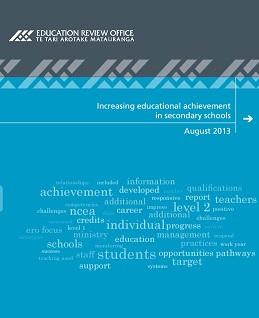Alternative Education: Schools and Providers
Published: 30 May 2011
Includes two reports: Secondary Schools and Alternative Education and Good Practice in Alternative Education
- Audience:
- Schools
- Content type:
- Research
- Topics:
- Alternative education (AE)
- Secondary

















